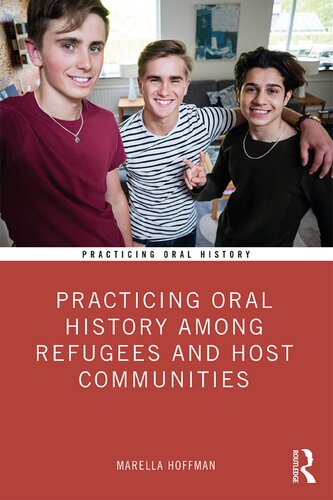

Most ebook files are in PDF format, so you can easily read them using various software such as Foxit Reader or directly on the Google Chrome browser.
Some ebook files are released by publishers in other formats such as .awz, .mobi, .epub, .fb2, etc. You may need to install specific software to read these formats on mobile/PC, such as Calibre.
Please read the tutorial at this link: https://ebookbell.com/faq
We offer FREE conversion to the popular formats you request; however, this may take some time. Therefore, right after payment, please email us, and we will try to provide the service as quickly as possible.
For some exceptional file formats or broken links (if any), please refrain from opening any disputes. Instead, email us first, and we will try to assist within a maximum of 6 hours.
EbookBell Team

4.0
66 reviewsPracticing Oral History among Refugees and Host Communities provides a comprehensive and practical guide to applied oral history with refugees, teaching the reader how to use applied, contemporary oral history to help provide solutions to the ‘mega-problem’ that is the worldwide refugee crisis.
The book surveys the history of the practice and explains its successful applications in fields from journalism, law and psychiatry to technology, the prevention of terrorism and the design of public services. It defines applied oral history with refugees as a field, teaching rigorous, accessible methodologies for doing it, as well as outlining the importance of doing the same work with host communities. The book examines important legal and ethical parameters around this complex, sensitive field, and highlights the cost-effective, sustainable benefits that are being drawn from this work at all levels. It outlines the sociopolitical and theoretical frameworks around such oral histories, and the benefits for practitioners’ future careers. Both in scope and approach, it thoroughly equips readers for doing their own oral history projects with refugees or host communities, wherever they are.
Using innovative case studies from seven continents and from the author’s own work, this manual is the ideal guide for oral historians and those working with refugees or host communities.